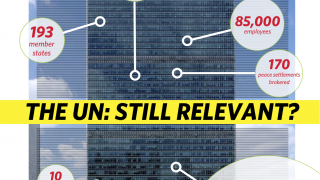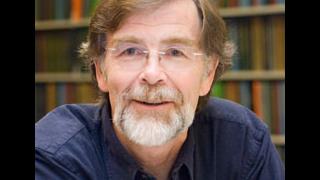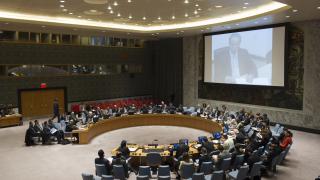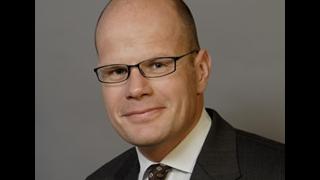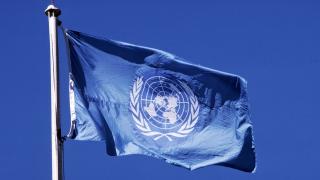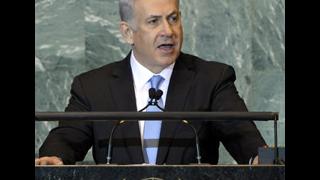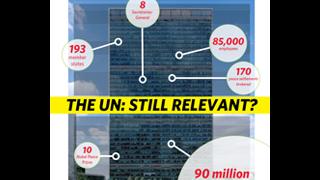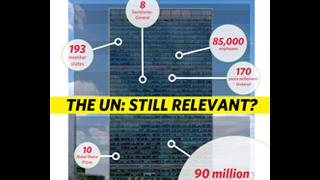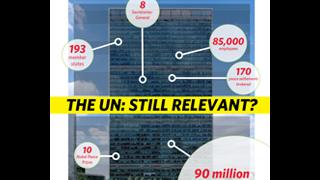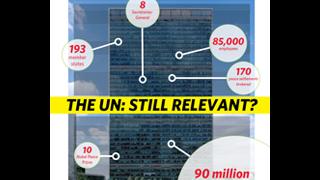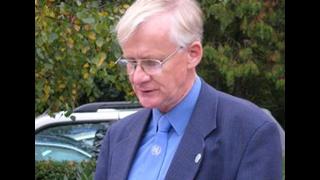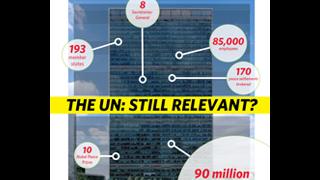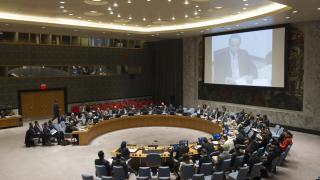
In the black:
- The Security Council remains central to international peace and security matters. Its decisions command attention and are binding on UN member states. It is pivotal to conferring international authority and legitimacy on interventions, as exemplified by the build-up to the deployment in Libya earlier this year, compared with the US-led invasion of Iraq in 2003.
- Since the end of the Cold War, the Council has functioned more efficiently: adopting twice as many resolutions as previously, significantly expanding UN peacekeeping, particularly in Africa, and widening its agenda to address issues such as women and security, climate change and civilians in armed conflict. The low incidence of inter-state war in the last 66 years is surely no coincidence.
- The Council's five permanent members (China, France, Russia, the UK and the US) have only exercised their veto on 24 substantive occasions since 1990, compared to 193 times in the 45 years before then. They have even, on occasion, refrained from using it to block resolutions concerning situations where they have strong national interests.
- While permanent membership of the Security Council has accorded these countries much influence at the UN, it has also encouraged them to continue to work with it and through it. An expanded Council might prove too unwieldy for timely decisions. This could encourage powerful nations to resort to unilateral action more frequently.
- An expanded Council would not necessarily be more likely to take action. Germany and India, two possible candidates for permanent membership, abstained on the recent vote on Libya. South Africa has blocked action on Zimbabwe, and Brazil and Turkey have done so in relation to Iran. Regional rivalries between potential candidates also mean there is no definitive list of future permanent or semipermanent (e.g. 10- or 15-year terms) members.
In the red:
- The Security Council no longer reflects the balance of power in the world. At least two of its five permanent members can no longer claim to be "major powers".
- The Council has failed to bring effective action to bear on the most difficult issues, such as the Middle East peace process, Iraq and Kashmir. It has struggled to agree on situations strongly linked to the interests of its five permanent members, and it did not respond adequately to events in Rwanda, Sri Lanka or the former Yugoslavia.
- The Council's 10 elected members only serve two-year terms. This means its membership often excludes big economic players such as Germany and Japan; emerging powers like India and Brazil; and smaller countries that provide many of the UN's peacekeeping troops, such as Bangladesh.
- Widening the membership could lead to more engagement by regional organisations and emerging powers. This would help to spread the risks and burden of tackling threats and encourage active participation within a rules-based system.
- The Council does not give adequate representation to African countries, although the continent is the focus of much of the Council's work.
- The longer the Council's composition is seen as outdated, the more likely it is to be bypassed.
- Calls for reform are unlikely to abate now that the issue has taken on such a high profile. It cannot remain unresolved.
On balance: We must support Security Council reform but not focus solely on composition. We need to consider the functioning of the Council and its place within the international system.On balance:
Photo copyright: UN Photo

